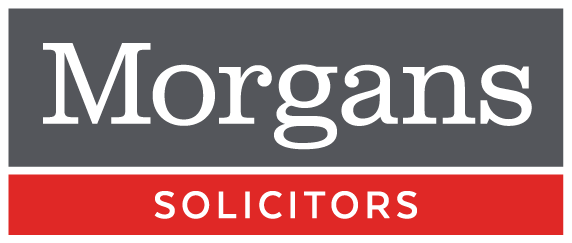
Although our offices are temporarily closed to help keep us all safe and slow the spread of Coronavirus, we still have staff on hand from behind our laptops at home with our calls diverted to mobiles, to assist our landlords and tenants with any queries they may have in these difficult times.
The present advice is that we should all stay at home and only leave home for work if it is absolutely necessary. This applies to landlords, letting agents and tenants alike.
What is considered “absolutely necessary”?
- Move-ins where the incoming tenant is not able to postpone the move in date, for example because otherwise they would have nowhere to live.
- Emergency maintenance work e,g heating/hot water repairs, water leaks. If tenants are not willing to allow access for emergency maintenance work, then landlords should keep records of all attempts made to arrange access and ensure you continue to make repeated attempts to arrange access. If access is allowed, you can take additional measures to ensure contractors and tenants remain in separate rooms during visits and follow government advice on cleanliness and hygiene, before, during and after visits.
- Move-outs to check the property is safe and secure – these should be done without the tenant being present and to reduce the risk of virus spread from surfaces, it is recommended that this is done 72 hours after the tenant has moved out.
- Letting Agents should continue to adhere to their in house procedures for rent collection and handling client money.
Social distancing and personal hygiene to reduce the chances of spreading the virus is paramount.
What is considered unnecessary activity?
Most other property related activities are unlikely to be considered absolutely necessary.
- Property inspections should not be carried out at this time.
- It is up to lettings agents to decide whether to advertise a property but viewings should only take place in exceptional circumstances e.g if a tenant needs to be rehoused because their current property is uninhabitable.
- Where an individual/family is self-isolating or where a vulnerable person is shielding, moves should not take place unless required for urgent health and safety reasons.
Is rent still due?
Rent is still due under the terms of the tenancy agreement and tenants who are able to pay rent as normal should continue to do so. Everyone is different, so some tenants’ financial circumstances may be worse or different to another’s and so landlords are encouraged to be flexible and have a frank and open conversation with tenants at the earliest opportunity to allow both parties to agree a sensible way forward, should there be any difficulties making payment.
Tenants who are in financial difficulty should check the latest Government guidance for financial assistance that is available.
What about the legal obligations to provide regular gas, electrical and fire safety inspections?
Despite the initial advice to landlords and letting agents to postpone safety inspections until after the lockdown restrictions have been lifted, the Scottish Government conceded on 9th April that annual gas safety regulations are reserved to the UK Government and so these cannot be changed.
Landlords and Letting Agents are now advised to continue to try to get gas safety checks done wherever possible.
The Minister for Local Government, Housing and Planning has urged the Secretary of State for Housing, Communities and Local Government and the Health & Safety Executive to take a proportionate and pragmatic approach by providing a temporary extension of the statutory obligations in light of the current pandemic.
The Health & Safety Executive’s guidance is that each property should be considered separately and all reasonable attempts should be made for the inspections to be done and alternative Gas Safety Engineers sought if necessary. If this is not possible, landlords should prioritise property inspections based on factors such as:-
- Age and type of appliances
- Previous maintenance works
- Breakdown history
- Presence of CO2 detectors
- Whether the tenant is vulnerable for reasons other than due to the Covid-19 pandemic.
Assistance for Landlords
The Scottish Government announced on 6th April that they will be offering financial assistance to Scottish landlords who suffer a loss of income as a result of the Coronavirus crisis by way of interest free loans that should be available by the end of April. Further details including how to apply will be updated as soon as this is available. Although this is a loan, rather than a grant, it is a significant assistance to landlords being interest free, while bank finance is a relatively high cost for those who might need it. So far, there is no similar support for landlords in England & Wales.
Mortgage lenders have agreed to offer payment holidays of up to 3 months where this is needed due to a loss of income as a result of the Coronavirus pandemic. If you are concerned, you should contact your mortgage lender.
Changes to eviction procedures
The Coronavirus (Scotland) Act 2020 is now in force.
The act protects tenants in Scotland from any eviction action for a period of up to 6 months and applies to both private and social rented housing sectors. This ensures the position is absolutely clear for all landlords and tenants in Scotland.
The Act contains specific provisions to prevent private and social tenants from eviction during the current outbreak by extending the notice period a landlord must give a tenant when ending a tenancy.
Notice periods are temporarily extended in most cases where landlords now need to give 6 months’ notice to a tenant unless they are ending the tenancy for specific reasons including anti-social and criminal behaviour by the tenant or where the landlord or their family need to move into the property, where the notice period is 3 months.
These changes do not apply to evictions where the landlord served notice on the tenant before 7 April 2020.
During this period, all evictions will be discretionary, which means that if the tenant doesn’t voluntarily vacate the property and the landlord has to apply for an eviction order at the Tribunal, the Tribunal may decide to exercise a reasonableness test in deciding whether to evict the tenant or not. The Tribunal will make their decision based on the circumstances of each case and whether the tenant’s need/right to occupy the property is outweighed by the landlord’s need/right to repossess the property.
The legislation also changes the notice period that the landlord is required to give the tenant, depending on the type of tenancy and the ground for eviction being used. These vary from 28 days to 6 months’ notice.
The Housing and Property Chamber of the First-Tier Tribunal who hear eviction cases will not be hearing cases until at least 28 May, but this might be longer. The Tribunal is making arrangements to close the Glasgow Tribunal Centre with only essential business continuing meantime. We await further announcements.
Someone in my HMO has the virus, am I required to remove them or find my tenants another place to stay?
The Government has issued specific guidance on what to do if someone in your household has contracted the virus, including self-isolating the whole household for 14 days.
Nobody can be removed from their home because of the virus. Landlords are not obliged to provide alternative accommodation for tenants if others in the property contract the virus.
Should you have any further questions please do not hesitate to get in touch by emailing info@morganlaw.co.uk or calling 01383 620222.

